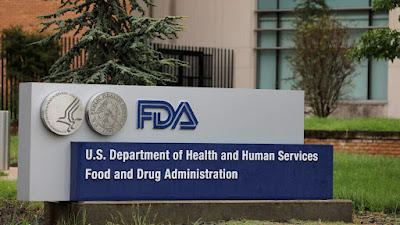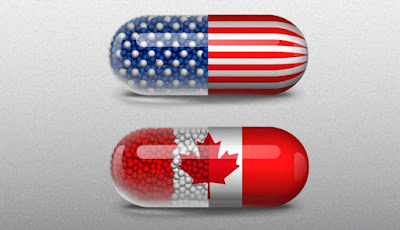By: Ranier Simons, ADAP Blog Guest Contributor
The U.S. Food & Drug Administration (FDA) has started the year off in the news cycle under controversy. The beleaguered federal agency announced on January 5th its authorization of Florida’s flawed drug importation program.[1] Under section 804 of the Food, Drug, and Cosmetic Act (FD&C Act), the FDA created a pathway for states to import certain prescription medications from Canada.[2] A state must submit a section 804 importation program proposal (SIP) to the FDA, which fulfills all requirements specified by the FD&C Act and FDA regulations delineated under the Code of Federal Regulations Title 21 Part 251 (21 C.F.R. part 251).[3] Drug prices in Canada are significantly lower than those in the United States, but rooted in a myriad of reasons. The goal, in theory, is to lower the costs of drugs for the consumer by purchasing them at lower prices from Canada. However, Florida’s SIP does not provide lower costs for consumers, threatens the safety of the United States' drug supply, and could cause harm to Canadians. Moreover, in its current approved iteration, Florida’s plan is an acute threat to people living with HIV (PLWH) since many of the proposed drugs for import are HIV treatments. For that reason, ADAP Advocacy was the very first patient advocacy organization to question the FDA's decision after it was made public.
All of the FDA and FD&C Act rules for the importation of prescription drugs from Canada exist to support one central overarching tenet: to significantly reduce the cost of drugs to the American consumer without imposing additional risk to public health and safety. Florida’s plan does not fulfill that tenet. According to Florida’s SIP, the drugs purchased are for those receiving care through the Florida Agency for Healthcare Administration and its Medicaid managed care plans, Agency for Persons with Disabilities (APD), Department of Children and Families (DCF) mental health treatment facilities, Department of Corrections (DOC), and the Department of Health (DOH) county health departments.[4] Those served by these entities are a small subset of the overall Floridan population. Additionally, those receiving prescription drugs through these programs already have access to them at very deep discounts and, in some cases, for free. Any resulting cost savings would benefit state drug spending expenditures, not Floridian consumers.
Cost savings or cost containment is also a challenge due to the logistics required to properly execute the importation program. The section 804 importation program rules require many steps to help ensure the safety of imported medications. One of these critical steps is testing. Testing of every batch of imported medicines is required to verify authenticity, degradation inquiry, and purity to rule out contamination and more.[2,3,5] Testing is expensive and requires the usage of FDA-acceptable testing laboratories. Florida plans to use two testing facilities, one mainly functioning as a backup. One is in Detroit, Michigan, and the other is in Fairfield, New Jersey.[4] There is only one FDA-approved U.S. Customs and Border Protection (CBP)port of entry for eligible imported drugs, which is in Detroit.[4] Thus, there are costs associated with temperature-controlled transport of medications to testing facilities.
 |
| Photo Source: US Times Mirror |
The costs are just a fraction of the multitude of costly logistical details on both sides of the Canadian border required to implement Florida’s importation plan. The state has a $38 million contract with a logistics company for the administration and operation of the program.[6] This cost is in addition to paying for the drugs purchased under the program. Not only are most Floridians not receiving any consumer relief from prescription drug costs, but as taxpayers, their money is paying for the program. Research by Dr. Kristina M.L. Acri revealed that costs associated with conducting proper testing of imported drugs cancel out any potential savings.[7]
The logistics of implementing the program is also part of why it has the potential to add risk to public health and safety. Section 804 and the FDA regulations stipulate extensive and detailed requirements such as reporting on the origin of medications and their manufacturing, the documentation of the controlled chain of custody of drug batches, verifying that all Canadian suppliers receive drugs from FDA-approved manufacturers, and even requiring a detailed system for notification and retrieving drugs that have been recalled. Proper execution requires many moving parts and geographical locations, providing multiple points of possible compromise. The massive implementation will also result in subcontracting for various aspects, posing another potentially disastrous failure that can result in counterfeit medications, lowered efficacy of drugs due to improper storage or transport, or even adulterated or tampered medications. Moreover, Canada does not have a track and trace system like the United States; thus, there is no solid way to verify true transparency back to a non-US manufacturer.[8]
On the other side of harm is the damage Florida’s drug importation program could potentially be due to the Canadian system. Lyne Fortin, B.Pharm, MBA, who serves on ADAP Advocacy's board of directors, offered her insights from the Canadian perspective: "In recent years, 1 in 5 approved prescription drugs in Canada have been in out-of-stock situations, creating already enormous pressure on the public Canadian Healthcare which continues to introduce regulatory safeguards against US drug importation initiatives. The recent FDA decision, however, paving the way for such a program in Florida dangerously compounds the risks and severity of potential drug shortages for Canadians. Florida alone represents half of the entire Canadian population. HIV being a chronic, life-threatening infectious condition where U=U, the importance of secured supply and drug integrity are even more heightened. When patients on both sides of the border bear all the risks against the pursuit of unvalidated economic benefits, flags should be raised to balance short-sighted wishful thinking policies."
 |
| Photo Source: AARP |
On January 8th, Health Canada, Canada's version of the FDA, released a statement in response to the FDA decision. “Regulations have been implemented under the Food and Drugs Act to prohibit certain drugs intended for the Canadian market from being sold for consumption outside of Canada if that sale could cause, or worsen, a drug shortage in Canada. This includes all drugs that are eligible for bulk importation to the United States, including those identified in Florida's bulk importation plan or any other state's future importation programs.”[9] Canada is effectively legislatively blocking the bulk exportation of drugs. Essentially, no wholesaler in their legitimate supply chain can ship to the United States, and FDA regulations do not allow imported drugs outside of the legitimate supply chain. Additionally, manufacturers that sell their patented medications in both United States. and Canadian markets will not sell extra supplies to Canada just to potentially buffer increased demand due to exportation. Thus, if any exportation occurred, it would be from the supply meant explicitly for Canada, directly shorting their coffers. Canadians, in general, aren't too happy with the news either!
In addition to the aforementioned problems associated with the Florida bulk importation program, it poses a targeted threat to PLWH. Of the fourteen initial drugs listed for procurement in the Florida SIP, ten are HIV treatment medications. In recent years, there have been issues with counterfeit HIV medications. Gilead Sciences was the victim of a notable scheme. Over a two-year period, criminals sold over $250 million of counterfeit bottles of their HIV drugs including Descovy, Genvoya and Biktarvy.[10] Anything that can threaten the already fragile supply chain of HIV medication, such as drug importation, is a detriment to both U.S. and Canadian public health.
The FDA’s approval of Florida’s SIP is just the first step and one hill the state must climb to actually see any medicine in hand from this program, much less any savings. Additionally, given that Canada is not supportive of the venture, Florida does not have a Canadian supply to tap. Ultimately, the more significant issue is that importation does not solve the United States problem of high prescription drug prices.
[1] FDA. (2024, January 5). News Release: FDA Authorizes Florida's Drug Importation Program. Retrieved from https://www.fda.gov/news-events/press-announcements/fda-authorizes-floridas-drug-importation-program
[2] FDA. (2024, January 5). Importation program under section 804 of the FD&C Act. Retrieved from https://www.fda.gov/about-fda/reports/importation-program-under-section-804-fdc-act
[3] National Archives and Records Administration. (2024, January 10). Code of Federal Regulations: Part 251 - Section 804 Importation Program. Retrieved from https://www.ecfr.gov/current/title-21/chapter-I/subchapter-C/part-251
[4] State of Florida. (2023, October 20). The State of Florida’s Section 804 Importation Program (SIP) Proposal for the Importation of Prescription Drugs from Canada. Retrieved from https://www.safemedicines.org/wp-content/uploads/2019/09/01-Florida-SIP-Proposal-Oct-2023.pdf
[5] FDA. (2024, January 5). Letter of Authorization for Florida’s Section 804 Importation Program. Retrieved from https://www.fda.gov/media/175237/download?attachment
[6] State of Florida Agency for Health Care Administration. (December 29, 2020) Standard Contract. Retrieved from https://www.safemedicines.org/wp-content/uploads/2024/01/CN-680000-ME214.pdf
[7] Lybecker, K. M. (2020). State pharmaceutical importation programmes: an analysis of the cost‐effectiveness. Journal of Pharmaceutical Health Services Research, 11(2), 117–126. https://doi.org/10.1111/jphs.12349
[8] The Partnership for Safe Medicines. (2023). Canada doesn't have Track and Trace. Retrieved from https://www.safemedicines.org/wp-content/uploads/2019/09/Track-and-Trace-final.docx.pdf
[9] Health Canada. (2024, January 8). Statement from Health Canada on FDA decision on Florida bulk drug importation plan. Retrieved from https://www.canada.ca/en/health-canada/news/2024/01/statement-from-health-canada-on-fda-decision-on-florida-bulk-drug-importation-plan.html
[10] Reuters. (2022, September 28). Gilead widens battle against alleged counterfeit HIV drug ring. Retrieved from https://www.reuters.com/business/healthcare-pharmaceuticals/gilead-widens-battle-against-alleged-counterfeit-hiv-drug-ring-2022-09-29/


No comments:
Post a Comment